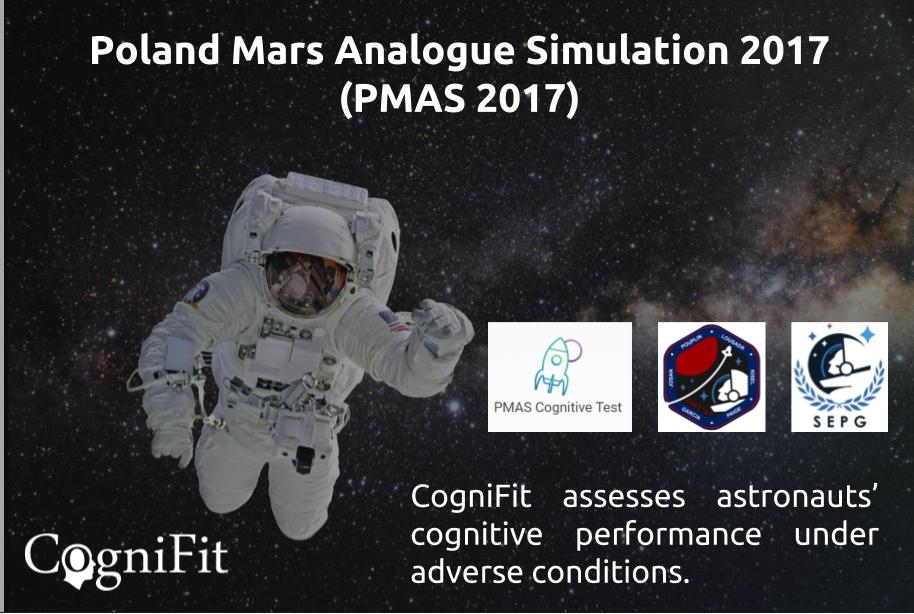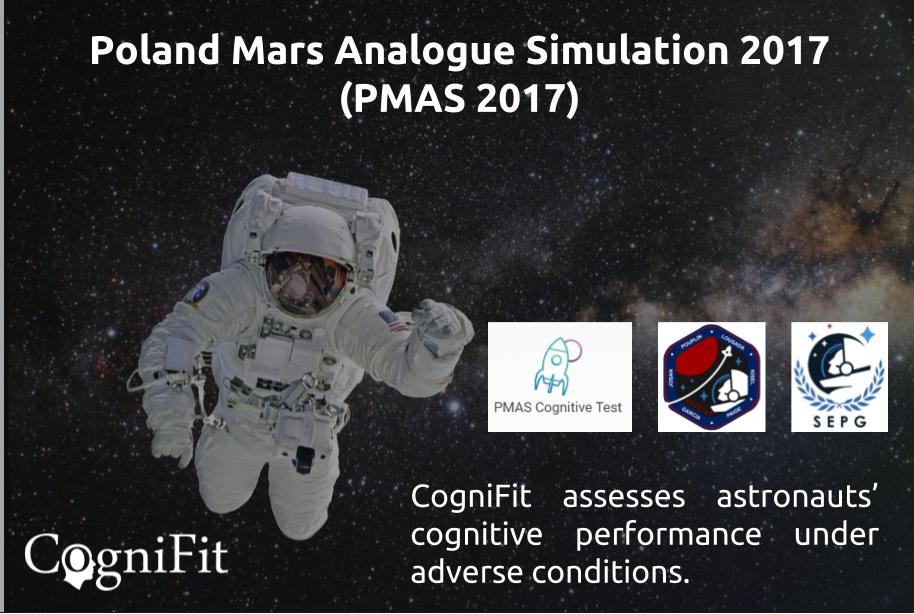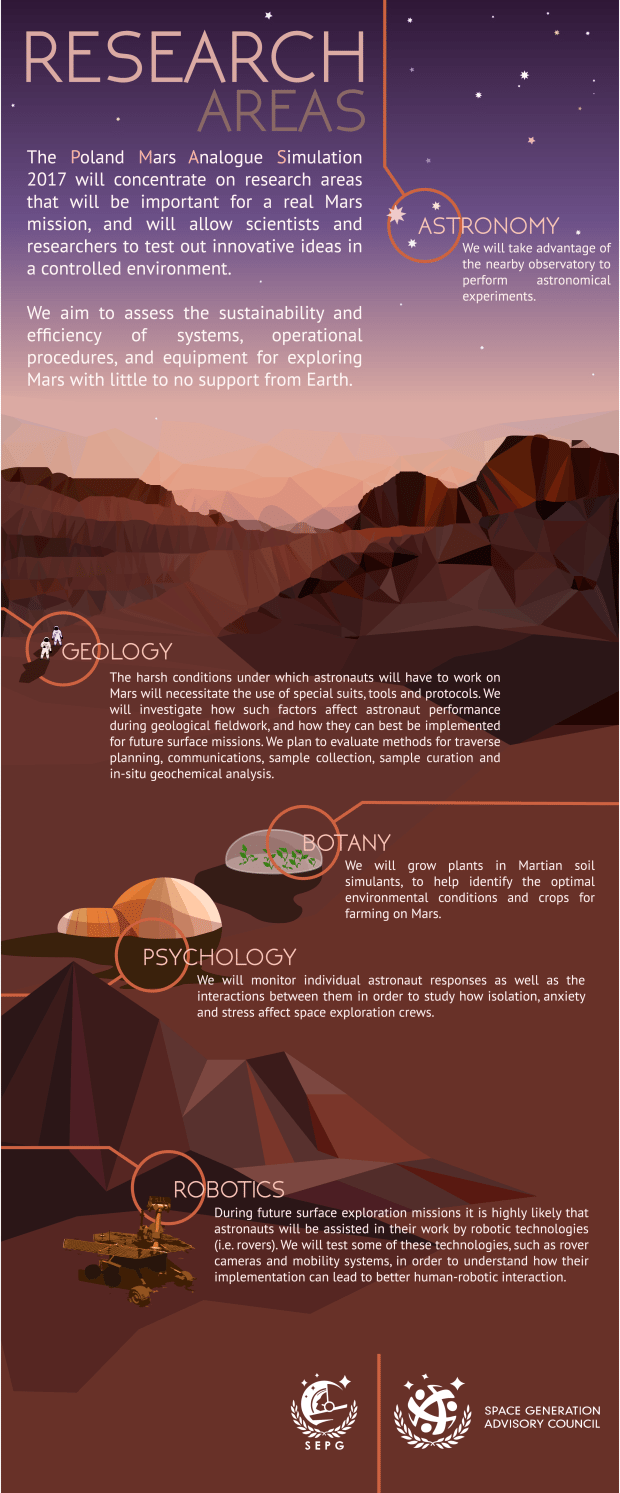
CogniFit evaluates the capabilities of astronauts in the space mission: Poland Mars Analogue Simulation (PMAS)
CogniFit participates in the “space race” to reach Mars by assessing the cognitive performance of astronauts under adverse conditions.
- CogniFit, a leading neuropsychological assessment, cognitive stimulation and brain training program, participates in the Poland Mars Analogue Simulation 2017 (PMAS 2017) international space mission by assessing the crew’s cognitive abilities under adverse conditions on the Moon or Mars. The technological innovation of CogniFit helps to prepare the arrival of the man to the red planet. Investigating and answering questions about how the human being behaves is fundamental to achieving mission success.
- CogniFit’s technological innovation helps prepare humans arrival to the red planet. Investigating and answering questions about how human beings behave is fundamental to achieving this mission success.

CogniFit – Cognitive Assessments and Brain Training in Astronauts
The Space Generation Advisory Council, supported by various institutions (such as the United Nations), is sending 6 astronauts to a simulated mission on the planetary surface of the Moon and Mars. This analog simulation project will be carried out in Poland, hence its name: Poland Mars Analogue Simulation 2017 (PMAS 2017).
Participants will have to follow a rigorous schedule of space exploration activities. The first three days of the mission, the astronauts will live and work in a habitat that simulates that of the Moon. The remaining 11 days, the simulated habitat will be Mars. These astronauts will continuously have support from the mission’s support center, that has more than 25 members. In the “Martian phase” of the project, they will have a delay of 15 minutes in their communications, since it is intended to simulate all the conditions of the real habitat.
CogniFit, a leading provider of neuropsychological assessments, cognitive stimulation, and brain training programs, participates in the international space mission by daily assessing the astronaut’s and crew’s cognitive abilities.
Investigating and answering questions about how the human being behaves is fundamental to achieving this mission’s success. Knowing the effects of isolation and other adverse circumstances that can happen in hostile habitats, like that of the Moon or Mars, increases necessary knowledge to launch a space mission to the red planet.
The participants of the mission come from Spain, the United States, France, India, Israel, Nigeria, Puerto Rico, and many more, with a total of 28 countries. For two weeks, the scientific team will perform studies that address a multitude of scientific disciplines ranging from engineering to astrophysics, psychology, geology, and biology.
Elon Musk a Space Pioneer
As the time to launch draws near we must make sure we are sending our best and brightest minds to land on Mars. There has been incredible developments in the Space Station and Rocket development programs especially from Elon Musk. Having a rocket that can touchdown than takeoff again makes a return trip from mars a possibility! It will be exciting to see how astronauts will approach mars in the future and land on a new planet for colonization.
This makes the Poland Mars Analogue Simulation of 2017 one of the most interdisciplinary, international and multicultural analog missions ever undertaken. CogniFits technological innovation contributes to change history and science by helping to better understand the human brain and prepare them to arrive on the red planet. You can also be like these astronauts, evaluate and train your cognitive abilities.

CogniFit-Poland Mars Analogue Simulation














